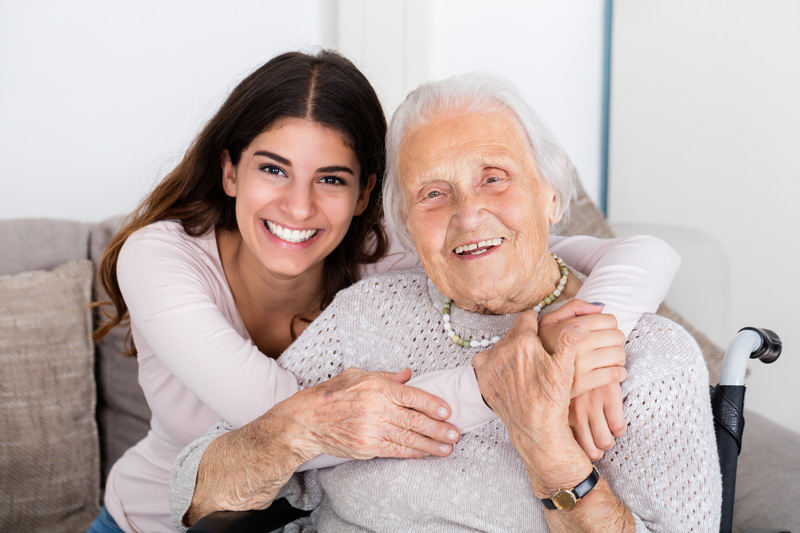As the United States undergoes a profound demographic transformation, the aging population poses unprecedented challenges and opportunities. The proportion of individuals over 65 is projected to swell from 18% today to 23% by 2054, with the number of centenarians set to quadruple.

This demographic shift strains healthcare systems and social structures, driving up care costs and exacerbating the shortage of care workers while increasing the risk of homelessness among the elderly, particularly those with dementia. Amidst these daunting prospects, there is a glimmer of hope: groundbreaking healthcare, technology, and housing advancements.
These innovations promise to enhance the quality of life for seniors, enabling them to age with dignity and support. However, realizing this promise demands thoughtful policy reforms to address caregiver shortages, the financial burden of long-term care, and the sustainability of Medicare funding.
Failure to act could undermine the strides made, but with strategic planning, the aging population could be a testament to human inventiveness and resilience.
Demographic Trends and Diversity
In 2018, 52.4 million Americans were 65 and older, representing 15.6% of the population. By 2030, this will rise to 20%. The aging population is increasingly diverse, with a 135% projected increase in racial and ethnic older adults from 2017 to 2040, compared to 36% for non-Hispanic Whites.
Challenges and Stereotypes
Stereotypes portray seniors as frail and disengaged, but many remain active and intelligent into advanced age. Implementing policies that ensure older adults receive equitable, person-centered, high-quality care is essential. Failure to act could undermine the strides made, but with strategic planning, the aging population could be a testament to human inventiveness and resilience.
Cultural Sensitivity and Diversity in Geriatric Mental Health Care
Cultural sensitivity is paramount in geriatric mental health care. Seniors come from diverse backgrounds, each with its cultural norms, values, and beliefs that significantly influence their mental health and well-being. Understanding and respecting these cultural differences is crucial for providing effective and compassionate care.
Understanding Cultural Backgrounds
Healthcare providers must educate themselves about the cultural backgrounds of their patients. This includes recognizing cultural attitudes towards aging, mental illness, and health care. For instance, some cultures may view mental health issues as stigmatizing, which can impact an older adult’s willingness to seek help.
Language Barriers and Communication
Effective communication is essential for quality care. Language barriers can lead to misunderstandings and reduced quality of care. Providing translation services and employing bilingual staff can help bridge this gap.
Inclusion of Family and Community
Family plays a central role in caring for seniors in many cultures. Involving family members in the care process and respecting their input can enhance the patient’s comfort and compliance with treatment plans.
Creating Age-Friendly Environments for Mental Wellness
An age-friendly environment significantly contributes to the mental wellness of seniors. These environments are designed to be accessible, safe, and supportive, promoting physical and mental health.
Accessibility and Mobility
Ensuring that physical spaces are accessible to those with mobility issues is crucial. This includes installing ramps, handrails, and elevators. Safe, easy-to-navigate environments reduce the risk of falls and promote independence.
Social Engagement Opportunities
Isolation and loneliness are major risk factors for depression in older adults. Creating spaces for social interaction, such as community centers and organized group activities, can enhance mental well-being.
Mental Health Services
Easy access to mental health services, including counseling and support groups, is essential. Integrating these services within community centers and primary care settings can reduce stigma and increase utilization.
Holistic Approaches to Senior Mental Health
Holistic approaches to mental health consider the whole person, including physical, emotional, social, and spiritual well-being. This comprehensive approach can lead to more effective and personalized care for older adults.
Integrative Therapies
Techniques such as mindfulness, meditation, and yoga can reduce stress and improve mental health. These practices promote relaxation and can be adapted to suit the physical abilities of older adults.
Art and Music Therapy
Engaging in creative activities can enhance cognitive function and provide emotional expression. Art and music therapy have been shown to reduce symptoms of anxiety and depression in older adults.
Spiritual Care
For many older adults, spirituality is vital to their identity and well-being. Providing opportunities for spiritual practice, whether through religious services or meditation, can support mental health.
The Role of Nutrition and Exercise in Supporting Mental Health in Aging Population
Proper nutrition and regular exercise are foundational to mental health, particularly in the aging population. They contribute not only to physical health but also to cognitive and emotional well-being.
Nutrition
A balanced diet rich in essential nutrients supports brain health and reduces the risk of mental health issues. Omega-3 fatty acids, antioxidants, and vitamins such as B12 and D are important for cognitive function. Encouraging older adults to maintain a healthy diet can significantly impact their mental health.
Exercise
Physical activity improves mood, reduces anxiety, and enhances cognitive function. Regular exercise, such as walking, swimming, or gentle yoga, can alleviate symptoms of depression and anxiety. Exercise also promotes social interaction, further enhancing mental well-being.
Hydration and Sleep
Adequate hydration and quality sleep are often overlooked but critical components of mental health. Encouraging proper hydration and healthy sleep habits can improve cognitive function and mood stability.
Conclusion
Caring for older patients requires a multifaceted approach that integrates cultural sensitivity, diversity, and holistic care. By creating age-friendly environments and emphasizing the importance of nutrition and exercise, healthcare providers can significantly enhance the aging population’s mental health and overall well-being. By understanding and addressing the unique needs of older adults, we can ensure they receive the compassionate, comprehensive care they deserve.
Temitope Fabayo, BA, MBA-HR, is President at DMC Homecare.
References




